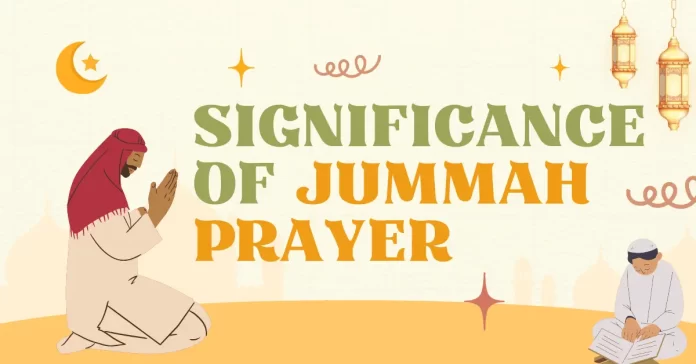Introduction
In Islam, the Jummah Prayer holds profound importance, serving as a weekly congregation for Muslims worldwide. Held every Friday, this special prayer not only fulfills a religious obligation but also unites the community, fostering a sense of brotherhood and spiritual rejuvenation. This blog delves into the significance, rituals, and virtues of Jummah Prayer, shedding light on its essential role in a Muslim’s life.
What is Jummah Prayer?
Definition and Timing
Jummah Prayer, also known as Friday Prayer, is a congregational prayer performed by Muslims every Friday, replacing the regular Dhuhr prayer. It is held after the sun reaches its zenith and before the Asr prayer. The prayer consists of a sermon (Khutbah) followed by a two-unit (Rak’ah) prayer.
Religious Obligation
The Jummah Prayer is obligatory for every adult male Muslim who is in good health and not traveling. It is strongly recommended for women, though not obligatory. The importance of this prayer is emphasized in the Quran and Hadith, highlighting its significance in Islamic practice.
Historical Background
Origin and Development
The tradition of Jummah Prayer dates back to the time of Prophet Muhammad (PBUH). The Prophet initiated this practice in Medina, making it a cornerstone of Islamic communal worship. Historical records indicate that the first Jummah Prayer was held in the vicinity of Medina in the Quba Mosque, where the Prophet delivered the sermon.
Quranic References
The Quran explicitly mentions the significance of Jummah Prayer in Surah Al-Jumu’ah (62:9):
“O you who have believed, when [the adhan] is called for the prayer on the day of Jumu’ah [Friday], then proceed to the remembrance of Allah and leave trade. That is better for you, if you only knew.”
This verse underscores the importance of prioritizing the prayer over worldly activities.
Hadith References
Several Hadiths emphasize the virtues of attending Jummah Prayer. Prophet Muhammad (PBUH) said:
“The best day on which the sun has risen is Friday. On it, Adam was created, on it, he was made to enter Paradise, on it, he was expelled from it. And the Hour will not be established except on Friday.” (Sahih Muslim)
This Hadith highlights the unique significance of Friday in Islamic tradition.
The Rituals of Jummah Prayer
Preparing for Jummah
Physical and Spiritual Preparation
Muslims are encouraged to perform Ghusl (full-body purification), wear clean clothes, apply perfume, and use the Miswak (a tooth-cleaning twig) before heading to the mosque. These actions signify respect and reverence for the special day.
Arriving Early
Arriving early at the mosque is highly recommended. This allows worshippers to engage in additional prayers, recite the Quran, and participate in the pre-sermon Dhikr (remembrance of Allah).
The Khutbah (Sermon)
Structure of the Khutbah
The Khutbah consists of two parts, separated by a brief pause where the Imam sits down. The first part typically includes praise of Allah, testimony of faith, and reminders about righteousness and good conduct. The second part often addresses contemporary issues faced by the community, providing guidance and solutions from an Islamic perspective.
Importance of Listening Attentively
Listening to the Khutbah attentively is crucial. Prophet Muhammad (PBUH) emphasized:
“Whoever says to his friend while Imam is delivering the Khutbah on Friday ‘Be quiet’ also commits an absurdity.” (Sahih Muslim)
This Hadith stresses the importance of paying full attention to the sermon.
The Congregational Prayer
After the Khutbah, the Imam leads the congregation in a two-unit prayer. This prayer is shorter than the regular Dhuhr prayer, emphasizing the special status of Jummah Prayer.
Virtues and Benefits of Jummah Prayer
Spiritual Benefits
Forgiveness of Sins
Attending Jummah Prayer sincerely is believed to atone for sins committed between two Fridays. Prophet Muhammad (PBUH) said:
“The five daily prayers and from one Friday prayer to the next are expiation for whatever (sins) come in between, so long as one does not commit any major sin.” (Sahih Muslim)
Increased Faith and Piety
Regular attendance at Jummah Prayer enhances a Muslim’s faith and piety, reinforcing their commitment to Islamic teachings and community values.
Social Benefits
Community Bonding
Jummah Prayer serves as a weekly reunion for Muslims, fostering unity and strengthening communal bonds. It provides an opportunity for social interaction, networking, and collective problem-solving.
Collective Worship
Praying together in large numbers amplifies the spiritual experience and reflects the collective strength of the Muslim community. It also reminds worshippers of the global Muslim Ummah, promoting a sense of solidarity.
Etiquette and Best Practices
Dress Code and Cleanliness
Wearing neat, clean, and modest attire is essential. Men should wear their best clothes, while women, if attending, should observe proper hijab.
Punctuality and Discipline
Arriving on time and maintaining discipline during the prayer is crucial. Worshippers should avoid unnecessary talking or distractions, focusing solely on the remembrance of Allah.
Engaging in Dhikr and Dua
Engaging in Dhikr (remembrance of Allah) and Dua (supplication) before and after the prayer enriches the spiritual experience. Muslims are encouraged to recite specific supplications and engage in personal prayers.
Rakats Table for Jummah Prayer
The Jummah Prayer includes several units (Rakats) performed at different times and with varying significance. Below is a comprehensive table detailing the recommended Rakats before and after the Jummah Prayer.
| Prayer Time | Rakat Type | Number of Rakats | Description |
|---|---|---|---|
| Before Jummah Khutbah | Sunnah Mu’akkadah | 2 | Highly recommended Sunnah prayers performed before the Khutbah begins. |
| Before Jummah Khutbah | Optional Sunnah | 4 | Additional voluntary prayers (Sunnah) that can be performed before the Khutbah. |
| During Jummah | Fard | 2 | The obligatory (Fard) prayer performed in congregation after the Khutbah. |
| After Jummah Prayer | Sunnah Mu’akkadah | 4 | Highly recommended Sunnah prayers performed after the Fard Jummah prayer. |
| After Jummah Prayer | Optional Sunnah | 2 | Additional voluntary Sunnah prayers that can be performed after the obligatory prayers. |
Explanation of Terms
- Sunnah Mu’akkadah: These are highly recommended practices that Prophet Muhammad (PBUH) regularly performed and emphasized.
- Optional Sunnah: These are additional voluntary prayers that provide extra spiritual benefits but are not obligatory.
- Fard: These are the obligatory units that must be performed as part of the Jummah Prayer.
Detailed Breakdown
Before Jummah Khutbah
- 2 Rakats Sunnah Mu’akkadah: Performed individually, these are highly recommended and should be observed to follow the practice of the Prophet (PBUH).
- 4 Rakats Optional Sunnah: These voluntary prayers can be performed before the Khutbah for additional spiritual merit.
During Jummah
- 2 Rakats Fard: Performed in congregation, this is the core of the Jummah Prayer. The Imam leads the prayer immediately after delivering the Khutbah.
After Jummah Prayer
- 4 Rakats Sunnah Mu’akkadah: These are performed individually after the obligatory Jummah prayer, emphasizing the importance of Sunnah practices.
- 2 Rakats Optional Sunnah: Additional voluntary prayers that can be performed after the Sunnah Mu’akkadah for further spiritual benefits.
By following this rakats table, Muslims can ensure they are performing the Jummah Prayer with all its recommended components, thereby maximizing their spiritual gains and adhering closely to the practices of the Prophet Muhammad (PBUH).
Common Questions about Jummah Prayer
Is Jummah Prayer Obligatory for Women?
While Jummah Prayer is not obligatory for women, it is highly recommended. Women can attend the prayer in the mosque or perform Dhuhr prayer at home if unable to attend.
What if One Misses Jummah Prayer?
If one misses Jummah Prayer, they should perform the regular Dhuhr prayer. Missing Jummah without a valid reason is considered a sin, and regular attendance is encouraged to maintain spiritual discipline.
Can Jummah Prayer be Performed at Home?
Jummah Prayer is ideally performed in a mosque with a congregation. However, in exceptional circumstances like illness or lack of access to a mosque, it can be performed at home, provided there are at least three adult males present, and the Khutbah is delivered.
Conclusion
The Jummah Prayer is a cornerstone of Islamic worship, rich in spiritual and social benefits. By attending this weekly congregation, Muslims not only fulfill a significant religious obligation but also strengthen their community bonds and deepen their faith. As emphasized in the Quran and Hadith, the Jummah Prayer is a profound reminder of the collective unity and spiritual rejuvenation that Islam offers. Embracing the etiquettes and practices associated with this prayer enhances its significance, making it a pivotal aspect of a Muslim’s life.

